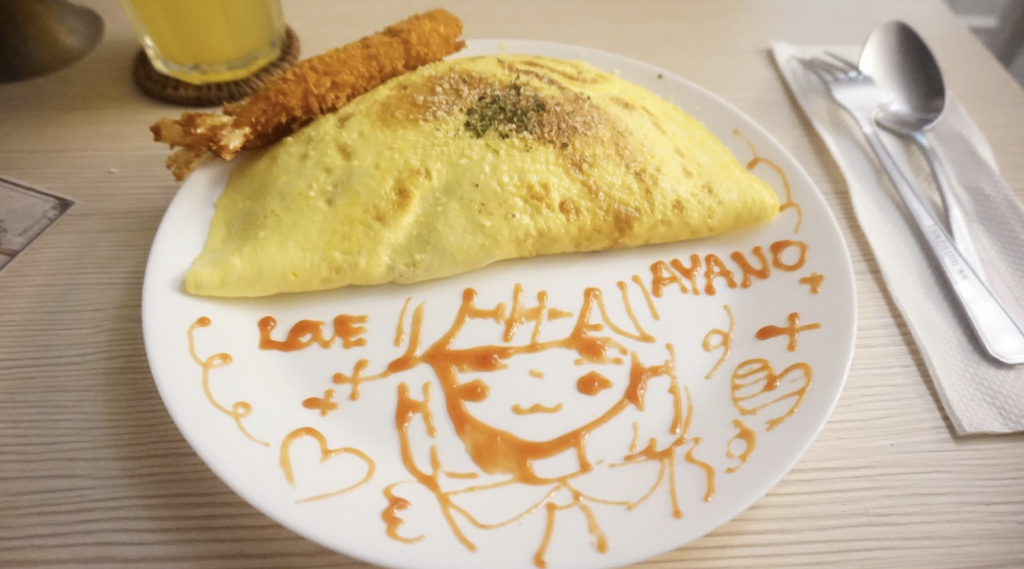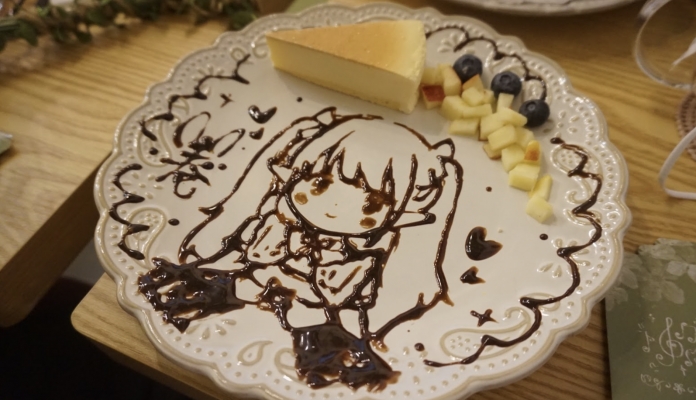Maid cafes are not just gathering spots for otaku, but also places where people seek comfort and relaxation.
By Lorraine Chiang
Seeking relaxation, Tom Chan Wai-lun visits maid cafés once a week.
“I am not close with waitresses in maid cafés. But talking to them is more relaxing than speaking to my colleagues because we have no clash of interests. My friends are too busy to chat with me,” Chan says.
Sharing common interests, Chan chats about Japanese anime with waitresses, making maid cafés a rendezvous for otaku or people interested in Japanese manga and anime.
Chan started an Instagram page in March 2022 with 1,116 followers, sharing his dining experience at different maid cafes and his interviews with waitresses at maid cafés.
“Many people mistakenly consider maid cafés as part of the sex industry. That is a huge misconception. In fact, there are many rules at maid cafes. Physical touch is forbidden for example,” Chan says.
“A lot of waitresses are still in secondary school and they just want to gain work experience. They are hard-working,” Chan adds.
Citing a diligent maid he knows as an example, he says, “The maid puts a lot of effort into making drinks for customers. Every time I go there, she tailor-makes drinks for me, and they always taste good. I can feel her dedication to providing good services.”
“The maids also ask you what you like and draw them on omelets with ketchup. I usually ask them to draw cats and dogs, and sometimes I ask for self-portraits,” Chan says.

“I hope others will find joy in maid cafés like me. It makes me feel very happy when other customers tell me they go to maid cafés after checking my page,” Chan adds.
Apart from bringing joy to customers, maid cafés also help waitresses find happiness outside of their daily routines.
Working full-time as a clerk, Mana Kong Hei-ling enjoys dressing up and playing a different character once a week at Maid Academy.
She runs a public Instagram account with about 1,200 followers, and many of them are her customers.
“My customers learn about my updates from my social media account. They find that I have become more energetic after I changed my job. I feel touched,” Kong says.
“It is tiring to work two jobs. But I still want to continue to work at a maid café because I can have fun while making money,” she says.
Apart from her caring customers, Kong also finds support from her colleagues. “They praise me for being charming and energetic on stage. My colleagues also teach me to be myself and remind me not to care about how others think of me. I may not be as popular or pretty as others, but I have my fans who love me for who I am,” she says.

Kong also shares positive vibes with her customers.
“Once a male customer wanted to dress up as a girl and asked me to teach him to do makeup. He used to cover his face in cosplay and ACG (animation, comics, and games) events, but now he has become more confident and shows his face more often,” Kong says.
Li Mei-ting, a lecturer of Cultural Studies at the Chinese University of Hong Kong, attributes the rise of maid cafés in Hong Kong to the emotional needs of ACG fans.
“Otakus have always been stigmatized as losers in Hong Kong and they are labeled as ‘geeks‘. In the past, cosplay was not accepted in mainstream culture so maid cafés are safe spaces for otaku to display their love for moe culture. They turn to maid cafés to share their interests,” Li says.
Moe is the youthful and innocent quality of teenage females, which elicits feelings of protectiveness and affection.
Li points out that the sense of homecoming is also an important attraction of maid cafés.
“When a customer enters a maid café, the maids and butlers say ‘Welcome home, master’. This family kinship answers the need for emotional bonding of these people,” she adds.
“The family kinship is more than just being biologically related. Though the customers know that they pay for the kinship, they still appreciate that,” Li says.
Edited by Phoebe Chu
Sub-edited by Karmen Yip







































